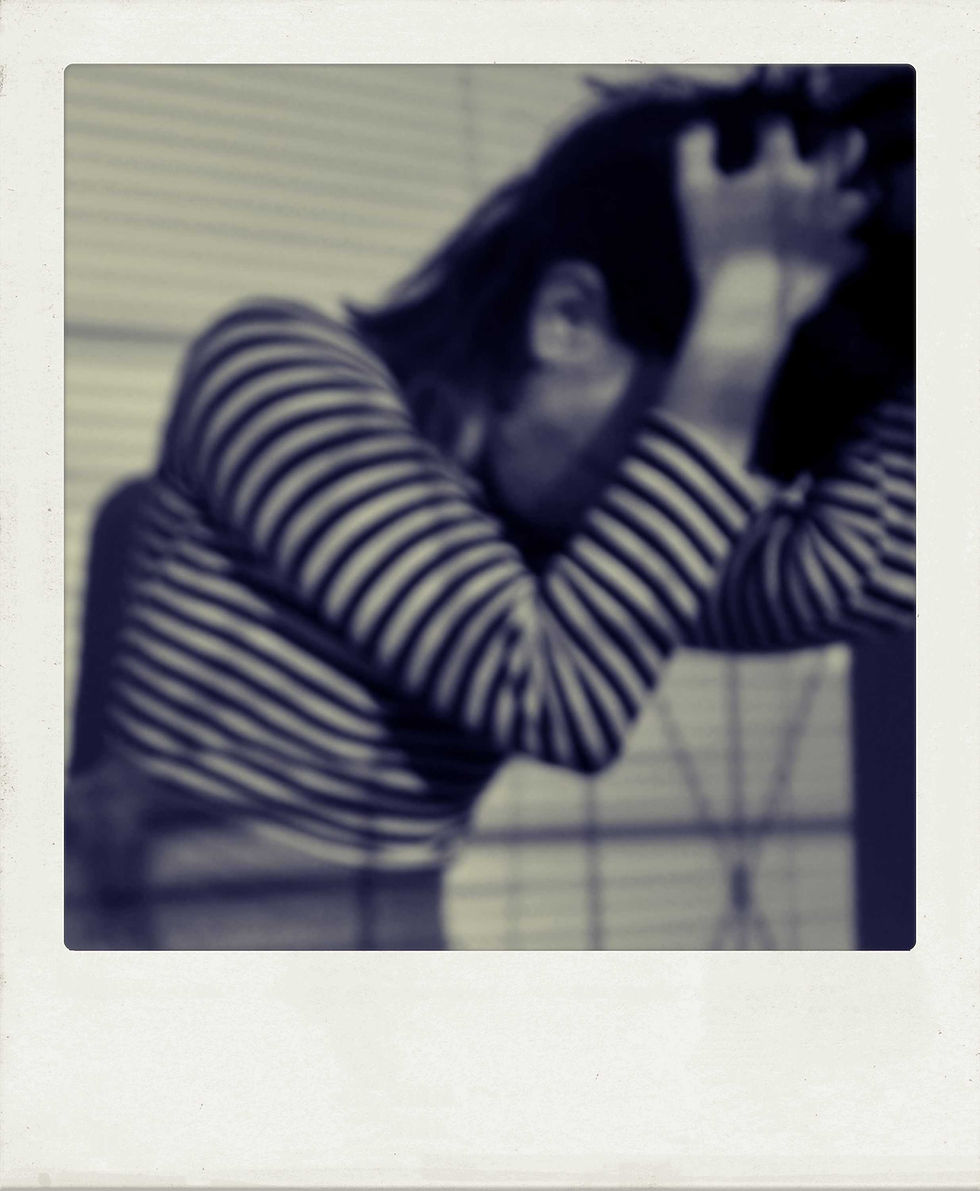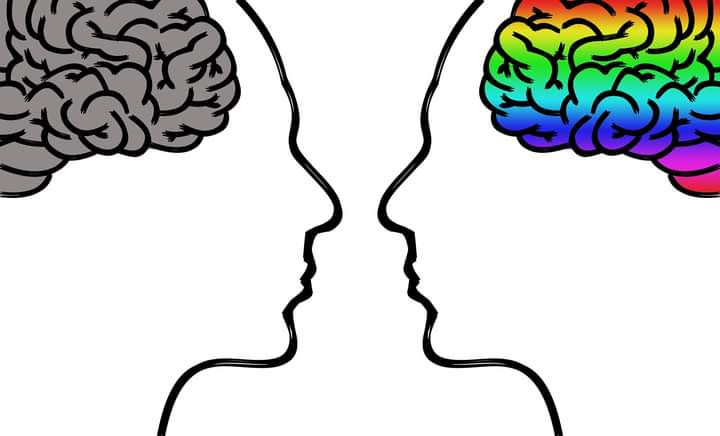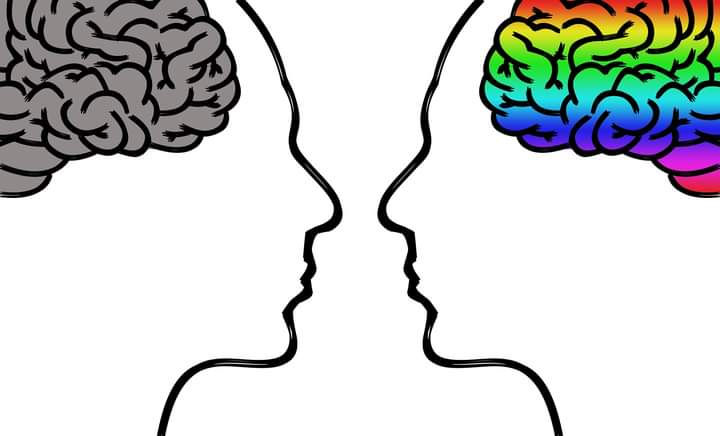How to deal with your emotional pain?
- Debora Wiseman
- 10 de jan. de 2023
- 5 min de leitura

"Let's not forget that emotions are the great captains of our lives, we obey them without realizing it". Vincent van Gogh
Therefore, as we have a respiratory, digestive and reproductive system, we also have a psychic system that is responsible for the field of emotions, feelings, thoughts and also for our behaviors. And, unlike medical treatments that take care of physical problems, it is not possible to do an endoscopy or magnetic resonance imaging so that in a short period of time you can measure the variables of emotions such as anger, fear, joy, sadness, frustration, hopelessness, etc… And also become aware of how these feelings influence our behavior and consequently affect all areas of our lives.
In short, emotional pain is most often caused by emotional triggers that ultimately lead to physical pain. It is common for this type of pain to only appear after a specific situation in which your emotional state is shaken in some way. Emotional problems of psychological origin such as anxiety, anger, depression, fear and frustration can cause pain as real as stubbing your toe on the edge of a table.
The health treatment model is currently still based on concrete diagnostic data and normally subjective or hidden factors within our psyche are duly considered. Even in a medical consultation, faced with the diagnosis of gastritis or asthma, for example, when the doctor communicates that it is an emotional, psychosomatic or psychological illness, the patient generally minimizes the problem, thinking that only with the medicine conventional treatments will solve the problem without undergoing complementary therapy as part of medical treatment.
The patient, resigned to the knowledge that his “disease” is “emotional”, the result of “stress” or “things of the mind”, generally, disregards the fact that the brain is responsible for the body's functions. That is, it does not validate the diagnosis or undergo complementary treatment with a qualified professional.
Do you know how to recognize your emotions?
Usually when a person feels pain they know they should take a pain reliever. If you experience heartburn, you know you should take an antacid. Even if you've never put it into practice, most people have some notion of physical first aid.
But, what about when that anxiety, frustration or even a burnout hits? Or when anger, fear or anguish suddenly overwhelms you? Most people fail to properly recognize and identify what they feel and limit themselves to reacting to sensations, impulsively or compulsively, compromising their physical health, as well as other areas of their lives.
In the process of development and learning, we were taught that we must follow certain norms and certain specific ways and behaviors are necessary to live in society; thus, we develop social intelligence. At school, education is oriented towards practical intelligence. There, knowledge is acquired and skills are developed. But we weren't taught to recognize our feelings, to deal with emotions and life events.
We do not learn to get in touch with what we feel, to reflect on how we act and to measure the intensity, validity and veracity of thoughts and feelings, which results in behaviors that, in many cases, generate damage and suffering. We don't learn to develop emotional intelligence.
Do you know how to deal with your emotions?
Valuable tips for dealing with them:
If you've ever been hurt, you know that the pain doesn't go away when you want it to, but when the wound heals. It doesn't help at all to fight with yourself, or with the pain.
1. Create self-compassion: This means supporting yourself in the face of suffering. It's a skill that helps you get in touch with your pain, understanding what it means.
2 Accept the pain instead of suffering: Don't confront or despair. You will be in for surprises when you manage to be with the pain without despairing. Despairing brings that feeling that tells you that you urgently need to deal with what ails you.
If you've ever had a wound, you know that the pain doesn't go away when you want it to, but when the wound heals. It's no use fighting with yourself, not even with the pain.
In reality, at some point, you will need to deal with the wound, disinfect it and take care of your wound. It's a painful process that gets progressively easier until it eventually heals. Emotional wounds work the same way.
3. Be aware that every human being goes through suffering in life. Nobody came here in this life to lick honey, but to learn from suffering: We all make mistakes, we all lose, we all have some emotional wound. Imperfection makes us equal. So if you are imperfect, it means you are human. And by human, understand: equal to all mortals.
Understand, too, that suffering is not part of you, it does not belong to you,
It's just a temporary visitor. So, if it is at your house because it has a message and learning to send you, invite it to sit down and listen carefully to what it has to communicate to you.
4. Recognize and identify the intensity and severity of your suffering, proportionately, at this time. The intensity of your emotions doesn't always reflect the gravity of your real and current moment. Also, there may be some more serious distress with a family member or friend.
Remember that emotions are responses that your brain gives to the interpretations it makes about what is happening to you. The function of emotions is to motivate you to act in a way consistent with this interpretation.
The automatic interpretations we make about everything are not always correct. Sometimes, our brain tends to give more priority to negative information, that is, adverse events have a much more intense impact on our psychological state than positive events. And at other times, our past can make us much more sensitive to risks, for example susceptible to interpreting as threatening what is not.
5. Alternative therapies: Doctors claim that alternative therapies are excellent ways to improve sensory perception and self-knowledge, relieving tension and emotional pain and nerve stimuli, even healing them. which has a great influence on pain and enhances the effects of conventional treatments on a much larger scale
Relaxation techniques decrease contractions and improve self-awareness of the body.
6. Seek professional help: Emotional pain causes a lot of suffering and impairs quality of life, so it's vital to seek an accurate diagnosis and start treatments asap. Always remember that emotional health is not to be played with, for this reason, always pay close attention to balance and physical and emotional well-being.
In addition to our tips, it is always important to seek professional help from a competent therapist, in the long process of self-development and self-knowledge, in case the emotional pains are taking care of you and disturbing your daily performance and the process of change is too challenging.
In addition, it is ESSENTIAL that you continue with therapy sessions even if you feel better after starting drug treatment.
IMPORTANT: We are Holistic Therapists and our treatment is alternative. Even presenting satisfactory results, it is essential to emphasize that only duly qualified physicians can diagnose diseases,
recommend treatments and prescribe medication. If you need to take medicine, do so only with proper MEDICAL ADVICE.
All the best.
See you next week
Shalom!
Debora and Daniel Wiseman





Comentários